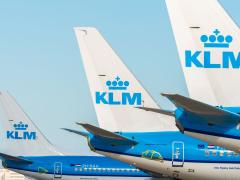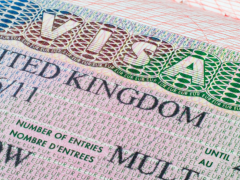TMCs and corporate buyers are facing growing tensions due to the outdated practice of billbacks, which is leading to significant financial and operational strains across the industry.
The billback system, requiring TMCs to pay suppliers directly and then seek reimbursement from clients, is high risk and can cause cashflow problems and damage business relationships, experts told Travel News.
“Billbacks do not make good business sense. They require higher cashflow and the agency can only get their money back 30 days after they have made payment,” explains Rachael Penaluna, MD of Sure Maritime Travel.
Stephen Howarth, Travel Operations Manager at Sure Travel, explained that billbacks were complicated by delayed payment from the client. Then the TMC must settle with supplier even though they had not received payment from the client, creating a major cashflow problem for the TMC.
Additionally, said Howarth, the reconciliation and billing process was time consuming, as it required a manual process to match hotel bills etc to specific travellers and clients could dispute various items on the bill, which would slow down the payment to the TMC.
The Financial Controller at Flight Centre Travel Group Treasury, Dayle White, attributes this particular challenge within billback agreements to “restrospective management” – ie policy compliance can only be managed after the fact, which is tricky if travellers have booked out of policy.
“They can then start affecting client relationships – invoicing issues between supplier, TMCs and clients. Travellers can also abuse the system with further charges to the bills, which should not be part of the reconciliation,” said Howarth.
From the corporate client’s perspective, the frustrations are equally clear.
Buyer frustrations
“Billbacks are honestly outdated. They delay payments, frustrate suppliers and create reconciliation headaches. Additionally, the SMME TMCs don’t always have sophisticated systems to ensure payments are done timeously. This can negatively affect their business and sometimes even result in business closure. It is unfair that the SMMEs must carry the cashflow risk whilst waiting for corporates to pay,” said Joey Kganyago, Corporate Travel Manager at the Industrial Development Corporation.
Kganyago also pointed out some of the challenges billbacks could present to the corporate traveller.
“Sometimes billback agreements fail and inconvenience the travellers. When communication is not filtered down to the right people, or instructions on the vouchers are not clear, this can cause frustration to travellers, even resulting in payment out of pocket.”
Mummy Mafojane, GM of FCM, agreed and reiterated that the retrospective nature of billbacks often meant that non-adherence to policy often went unaddressed until after travel was complete, creating uncertainty about expense approvals and potential personal liability for out-of-policy bookings.
“Policy compliance also becomes reactive, which is not great for travellers or travel managers – and it can undermine the effectiveness of travel policies and corporate governance,” she said.
Yet another problem pointed out by Kganyago was that delayed or ineffective communication between the supplier, TMC and client could delay booking approvals and the TMC’s compilation of invoices, which, in turn, would delay corporates’ settlements of the billbacks.
Mafojane said late invoicing was a persistent challenge that impacted reporting and financial planning. “If billing is delayed or establishments fail to generate invoices promptly, it creates delays and additional admin in terms of expense reconciliation and budget management.”
All of this was exacerbated by the rand’s constantly fluctuating rate of exchange, especially when there was a lag between travel and billing, which could result in unexpected cost variations that complicated expense management.
“This causes even more frustration and compromises the supplier-client relationship,” said Kganyago.
Modern methods
All the industry professionals advocate for a shift away from billbacks toward more modern, efficient payment methods.
Penaluna advocates for credit card payments and lodged cards. “Corporate lodged cards are widely accepted, and credit card companies are generally happy to issue lodged credit cards on behalf of their clients.”
Kganyago said banks needed to implement more inclusive banking by enabling suppliers in remote areas and SMMEs to access their technologies, such as virtual cards.
“Seamless integration between travel suppliers, TMCs and clients is perhaps the most important, as fragmented systems create operational bottlenecks. Timely, consistent payment processing, card management, fraud controls, tokenism (converting a credit card number into a digital equivalent) called a token, and payment card industry compliance are all essential,” said White.













